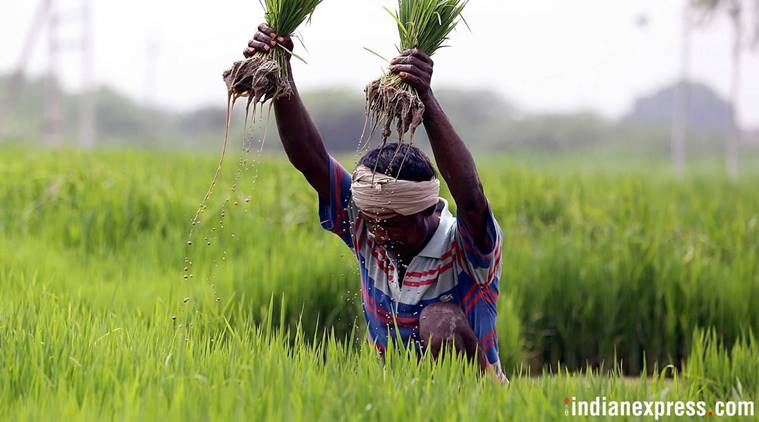Challenges in this year
-
Good rains, excessive sowing and the bumper harvest last year produced gluts in the market that sent the prices of many crops, and therefore farm incomes, crashing.
-
None of the economic tools available for protecting farm incomes — the price support scheme, the price stabilisation fund and the market intervention scheme — was employed to the best advantage.
-
Quick and precise adjustments to the export and import rules could have arrested the price fall by diverting the excess supplies to overseas markets.
-
But the changes required were not carried out in time. Instead, inflows of imports were allowed to go on, which worsened the price situation.

The MSP issue
-
This year’s Budget promised that the Minimum Support Prices (MSPs) would be at least 150% of production costs.
-
The intention of assuring 50% profit margin over the cost of production is to make farming remunerative.
-
On the formula for calculating production costs for plugging into the MSP formula, farmer groups and the government are not as yet on the same page.
-
But howsoever production costs are calculated, simply announcing higher MSPs will not raise farmer incomes. The system is not geared for scaling up procurement.
-
For several crops last year, the quantities procured were small portions of the total produce.
-
Although MSPs are announced for more than 20 crops, noteworthy procurement is conducted for three: paddy, wheat and sugarcane (procurement by sugar mills, not the government, given cane must be crushed within a few hours of being cut, or it dries, impacting sugar recovery drastically).
-
Further, procurement frequently takes places at prices below the MSP, as is happening this year, according to reports. Finally, small and vulnerable farmers usually do not get paid MSPs at all, as they sell their produce to aggregators, not directly in mandis.
-
In these circumstances, and given an imminent general election, the government is likely to take recourse to payments compensating for the difference between market prices and the MSP to appear farmer-friendly.
Alternative to MSP: The Telangana example
-
Income support payments, paid on a per hectare basis through direct transfers, offer an administratively neater, economically far less distortionary and politically more attractive solution.
-
Telangana has announced such payments for farmers at the rate of Rupees 10,000/ha per season.
-
The cost projections for scaling up this model to the national level, excluding the procurement of sugarcane, wheat and paddy, and non-MSP crops, are roughly as much as the estimated bill for the price differential payments.
Source: